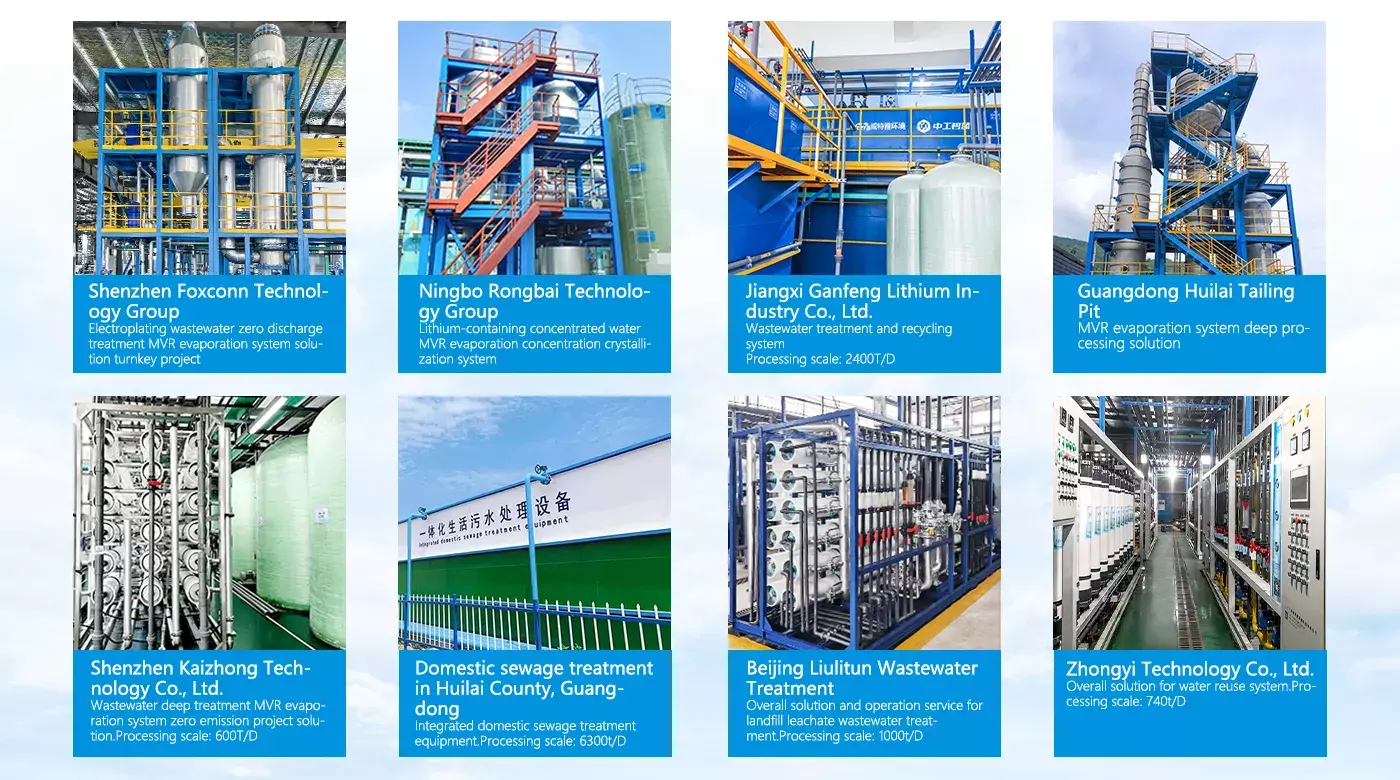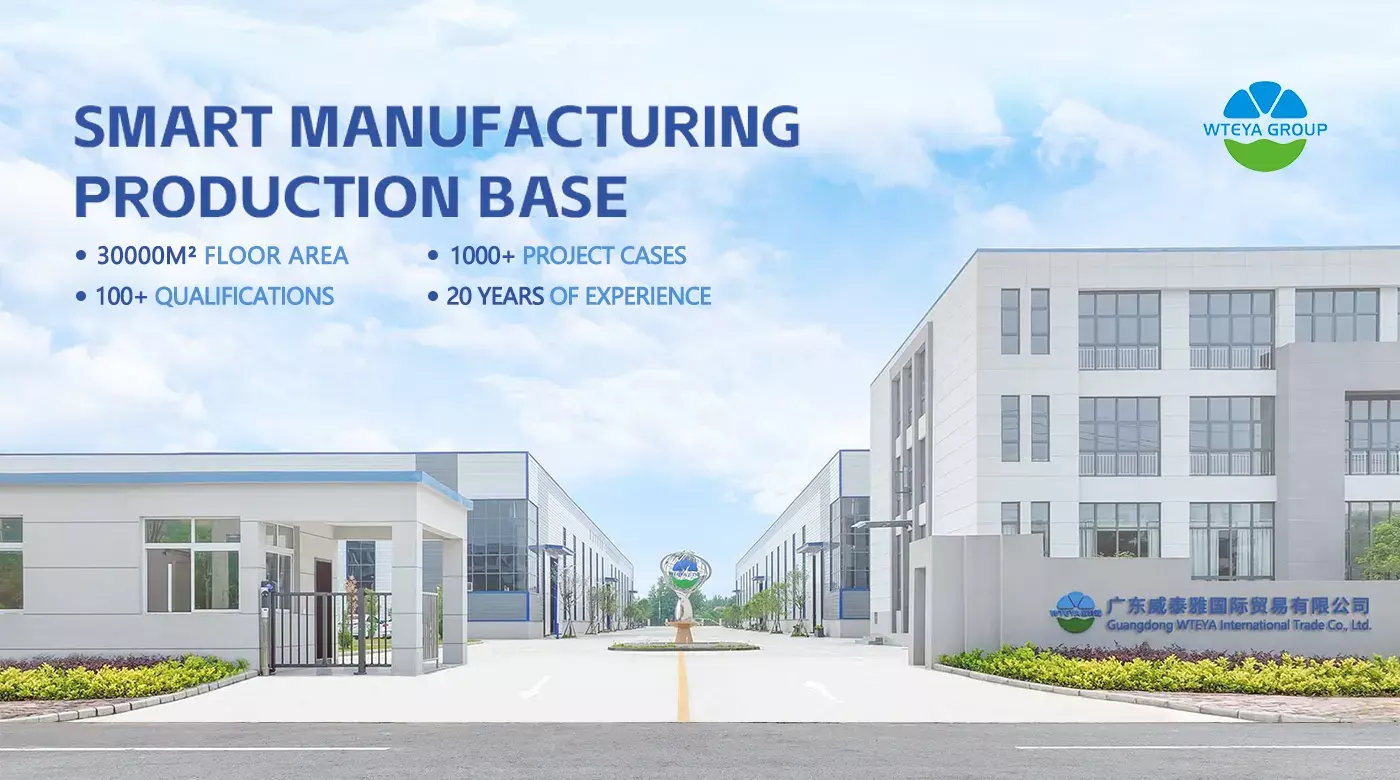WTEYA is a brand you can trust, with over a decade of extensive experience providing efficient and reliable water treatment solutions to numerous well-known companies worldwide. We have successfully implemented projects for publicly listed companies such as Foxconn, Huawei, Ganfeng, and Rongbai, with over a hundred project cases earning strong trust and praise from our clients. We support OEM & ODM customization, offering tailored solutions to meet your unique needs.
How Small-Scale Wastewater Treatment Plants Improve Residential Water Quality?
11 Nov, 2025 4:02pm
With the continuous advancement of urbanization, efficient and sustainable wastewater treatment has become increasingly important in residential areas. Small-scale wastewater treatment plants (STPs) provide innovative and environmentally friendly solutions for homes, small communities, and rural areas. These systems ensure that discharged water meets high-quality standards while reducing environmental impact. This article explores how small-scale wastewater treatment plants improve residential water quality and why they are essential for sustainable living.
What is a Small-Scale Wastewater Treatment Plant?
A small-scale wastewater treatment plant is a compact and efficient system specifically designed for residential areas. Unlike large centralized wastewater treatment facilities, small-scale STPs handle household wastewater generated from daily activities, including kitchen, cleaning, and personal hygiene. These systems use advanced biological, mechanical, and chemical treatment processes to purify wastewater to meet safe discharge standards.

How Small-Scale Wastewater Treatment Plants Improve Water Quality?
The main goal of a small-scale STP is to treat and purify wastewater so that it meets safety standards, making it suitable for discharge into natural water bodies or reuse. The process consists of several critical stages, each contributing to water quality improvement:
1. Pre-treatment: Laying the Foundation
Pre-treatment removes large solid particles, debris, and grease. Using sedimentation tanks and other pre-treatment units, impurities are separated from the water, reducing the load on subsequent biological treatment stages. This early filtration maximizes overall system efficiency and ensures water quality entering the next stage is suitable for further treatment.
2. Biological Treatment: Breaking Down Organic Matter
Biological treatment is the core stage of the process. Specialized bacteria break down organic matter in wastewater, converting it into harmless substances such as carbon dioxide and water.
In residential STPs, both aerobic (oxygen-required) and anaerobic (oxygen-free) bacteria are used depending on the design. Fat, oils, and detergents are transformed into simpler compounds, resulting in cleaner, safer water suitable for discharge.
3. Filtration and Color Removal: Refining Water Quality
Once most organic matter is removed, the water goes through filtration and color removal. Advanced filtration systems such as activated carbon or sand filters ensure water clarity while removing remaining suspended solids, chemicals, dyes, or toxins. This stage guarantees that only clean, safe water is released into the environment.
4. Disinfection: Ensuring Safety
Disinfection is the final step, eliminating remaining harmful microorganisms such as bacteria, viruses, and pathogens. Common methods include ultraviolet (UV) or chlorination treatment, which effectively kill harmful organisms in a short time. This stage ensures treated water meets environmental standards and is safe for the surrounding community.

Benefits of Small-Scale Wastewater Treatment Plants for Residential Areas
• Cleaner, Safer Water
Small-scale STPs prevent harmful pollutants—including organic waste, bacteria, and chemicals—from entering natural water bodies, significantly improving local water quality and protecting rivers, lakes, and groundwater.
• Energy-Efficient and Cost-Effective
These systems are designed for energy efficiency. Multi-stage treatment processes require low power consumption, making them a cost-effective choice for residential areas. Compared to large treatment plants, compact STPs offer lower operational costs.
• Environmentally Friendly and Sustainable
Small-scale STPs leverage natural biological treatment processes, minimizing environmental impact. Advancements in technology continuously reduce energy consumption, supporting green building practices and lowering carbon footprints.
• Space-Saving and Flexible Installation
Their compact design makes small-scale STPs suitable for residential areas with limited space. Unlike large infrastructure-intensive plants, they can be installed in various locations, from urban homes to rural communities, while integrating seamlessly with existing surroundings.
• Public Health Improvement
By removing harmful microorganisms, STPs protect public health. Treated water significantly reduces the risk of waterborne diseases such as cholera and dysentery. For residential areas, this means healthier living environments and reduced healthcare costs.
WTEYA: Leading Provider of Small-Scale Wastewater Solutions
WTEYA is at the forefront of providing small-scale wastewater treatment solutions, offering customized systems tailored to each project. As a leader in residential wastewater treatment, WTEYA employs the latest technology to ensure high water quality and efficient operation. WTEYA’s compact STPs combine pre-treatment, biological treatment, and disinfection into a complete solution, aiming to provide sustainable wastewater management for residential communities, improve water quality, and reduce environmental impact.
Conclusion: Why Choose Small-Scale Wastewater Treatment Plants?
Installing a small-scale wastewater treatment plant is one of the most effective ways to improve residential water quality. These systems offer numerous advantages, including cleaner water, lower costs, higher energy efficiency, and enhanced public health. Whether in rural or suburban areas, small-scale STPs provide practical, eco-friendly solutions for wastewater management. By investing in a small-scale STP, communities can not only improve water quality but also contribute to long-term environmental sustainability. With WTEYA leading the way in system deployment and efficient operation, water quality management in residential areas is becoming increasingly sustainable.
Why Choose WTYEA?
WTYEA Is Recruiting Global Partners!

We welcome your partnership. As a brand with nearly 20 years of experience, WTEYA offers various preferential policies, professional training guidance, and comprehensive technical support you can rely on!
👉 Let WTYEA help you achieve unmatched water quality performance!








